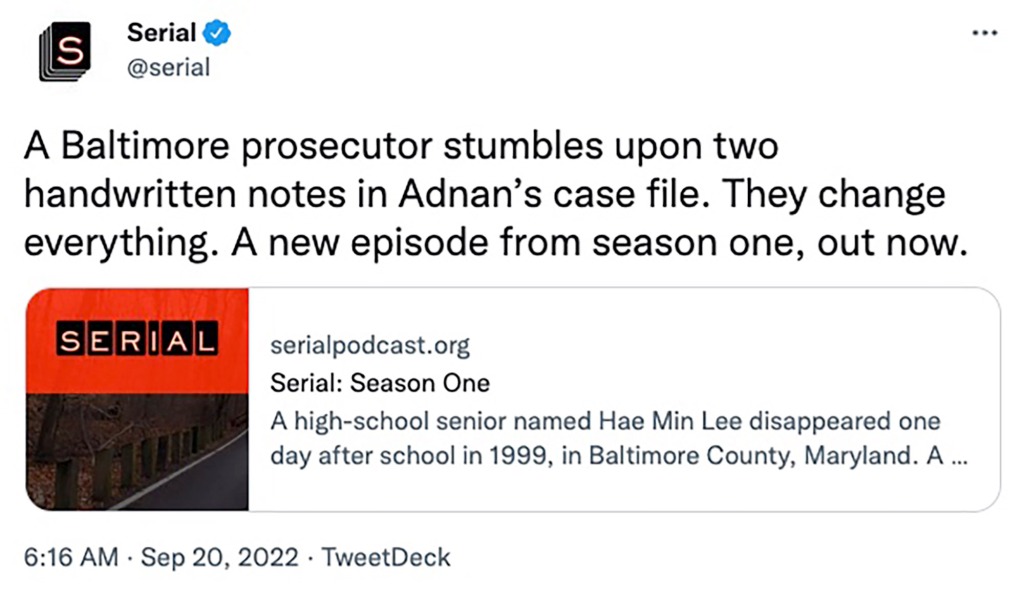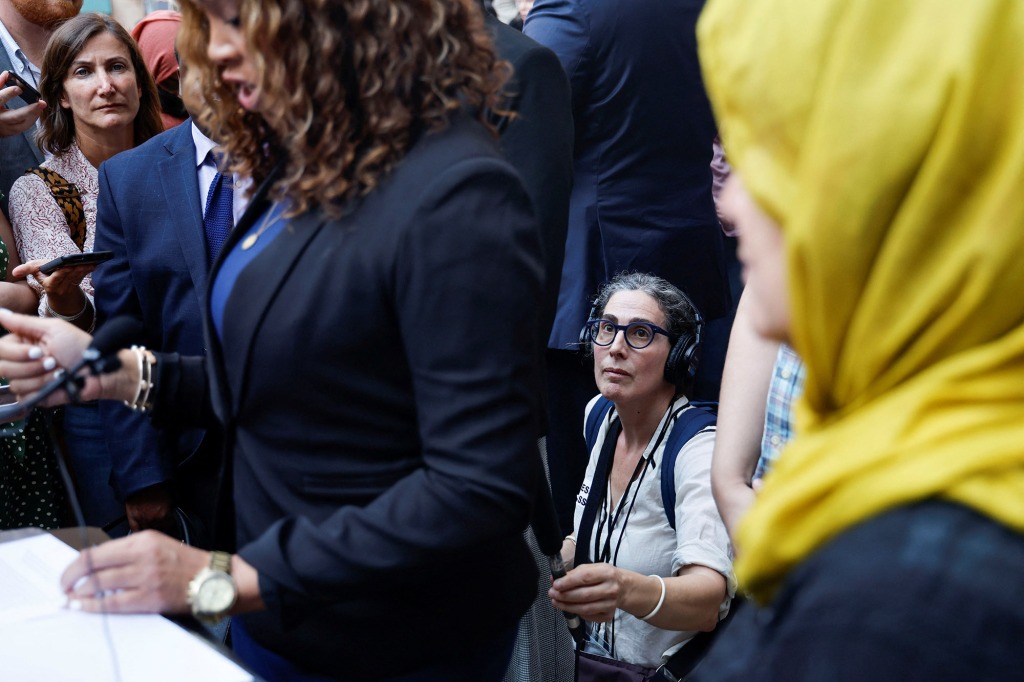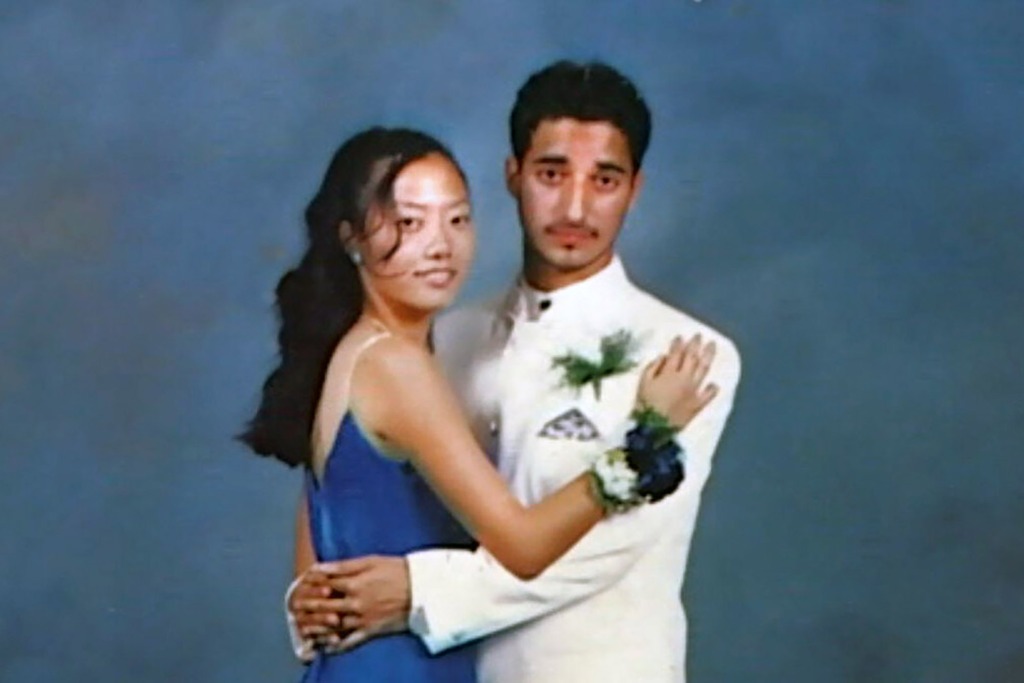‘Serial’ is back after Adnan Syed’s prison release
It’s time to feast on more Serial.
Adnan Syed was filmed snacking on his first food as a free man after being released from 23 years in prison — as “Serial,” the record-breaking podcast about his case, rushed out a new episode Tuesday.
Syed, now 41, was seen still in his court attire eagerly snacking on day-old dumplings Monday after a Baltimore judge vacated his conviction for the 1999 murder of his ex-girlfriend, Hae Min Lee.
“They’re pretty good,” Syed said to laughter as he munched while standing at an open fridge.
Syed’s case was followed by millions of people after it was examined in intricate detail by “Serial,” the 2014 podcast that shattered listener records with hundreds of millions of downloads.

“Serial” returned early Tuesday with a new, 13th episode to cap its first season about his case, called simply, “ADNAN IS OUT.”
“Adnan Syed got out of prison yesterday. It was extraordinary, the whole thing,” host Sarah Koenig told her listeners after the familiar restraint of its piano soundtrack.
“Adnan is out — on home detention for now, but out. Home,” she said, noting how the man whose case she covered somehow “just kept his cool” in court.

Koenig admitted to the New York Times that she “was shocked” that he was finally freed.
“I did not see this coming at all. One of the first things I did was call Adnan’s brother and then his mother — they told me they didn’t know either,” she revealed.
“I felt almost disoriented for about a day,” she conceded.
In her podcast, Koenig said that the “motion to vacate burst like a firework out of the prosecutor’s office, the very same office that asked the jury in 1999 to quote ‘come back with a guilty finding for first-degree premeditated murder.’”
She noted how the prosecutors “are not saying Adnan as innocent — they stopped short of exonerating him.”
“Instead, they’re saying that back in 1999, ‘We didn’t investigate this case thoroughly enough. We relied on evidence we shouldn’t have, and we broke the rules’ … This wasn’t an honest conviction,” she said.
Prosecutors realized that the case “just kind of crumbled once they took a hard look,” Koenig said.

“I know,” she added, her voice weary with sarcasm after having picked so many holes in the case earlier years earlier.
The biggest “bombshell,” she said, was that the prosecution did not hand over information about possible alternate suspects for the killing to Syed’s defense team.
They were not identified in the motion, but Koenig told her listeners, “I know who the suspects are.
“One of them was investigated at the time, submitted to a couple of polygraphs. The other was investigated also, but not with much vigor, as far as I can tell. He’s now in prison for sexual assault,” she said.

“But no one has charged either of these guys in connection with Hae Min Lee’s murder. So I’m not going to name them either,” she said.
The podcast host noted with frustration that the development was based on the very issues her series first examined: “How does a kid get convicted on evidence this shaky?”
Alarmingly, she said, “Adnan’s case contains just about every chronic problem our system can cough up.

“Police using questionable interview methods; prosecutors keeping crucial evidence from the defense; slightly junky science; extreme prison sentences; juveniles treated as adults; how grindingly difficult it is to get your case back in court once you’ve been convicted,” she noted.
“Yesterday, there was a lot of talk about fairness. But most of what the state put in that motion to vacate, all the actual evidence was either known or knowable to cops and prosecutors back in 1999.
“So even on a day when the government publicly recognizes its own mistakes, it’s hard to feel cheered about a triumph of fairness,” she said, noting it highlighted a “system that takes more than 20 years to self-correct.”

“And that’s just this one case,” she said.
Read the full article Here


